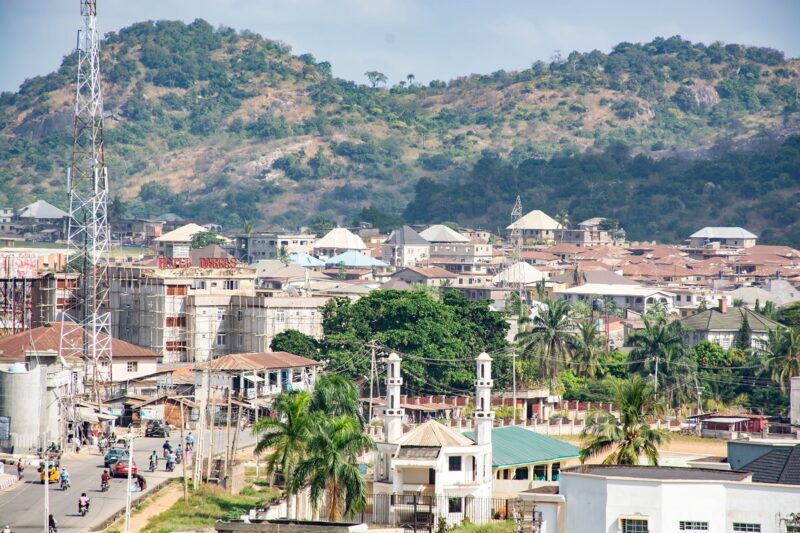Democracy & Governance
Democratic Decline: The Constant Desire for Power Struggle and Personal Interest in Nigeria -By Caleb Onah
By providing technical assistance, promoting good governance practices, and fostering dialogue, the international community can contribute to strengthening democratic institutions and processes in Nigeria. Nigeria’s potential as a regional and global powerhouse lies in its ability to address the challenges of democratic decline.

Nigeria, the most populous country in Africa, has had a tumultuous relationship with democracy since gaining independence in 1960. Despite notable progress in its democratic journey, the nation continues to grapple with a recurring theme: a decline in democratic values due to the constant desire for power struggles and personal interests.
With years of living in Nigeria, I can say, one of the primary reasons behind Nigeria’s democratic decline is the erosion of democratic institutions. Vital pillars such as the judiciary, electoral bodies, and the legislature have experienced varying degrees of manipulation and compromise. Political elites often exert influence to shape these institutions to suit their personal interests, resulting in weakened checks and balances. This erosion undermines the democratic process and erodes public trust in the system.
Further, corruption and mismanagement have plagued Nigeria for decades, hindering democratic progress and exacerbating the decline. The pursuit of personal gain and the embezzlement of public funds by politicians remain widespread. This culture of corruption infiltrates all levels of government and permeates electoral processes, distorting outcomes and undermining the will of the people. The diversion of public resources for personal enrichment deprives citizens of vital services and contributes to widening socio-economic inequalities.
Politics Nigeria’s diverse ethnic and religious composition has long been a source of both strength and conflict. Unfortunately, political leaders have exploited these fault lines to consolidate power and perpetuate the decline of democracy. Ethno-religious tensions are often stoked during electoral campaigns, leading to violence and further division among the populace.
Concerning the media, an active and vibrant civil society and a free press are essential components of a healthy democracy. However, in Nigeria, civil society organisations and the media face significant challenges in exercising their roles as watchdogs and advocates for good governance instance is the EndSARS, Bring Back Our Girls campaigns where journalist and media personal were harassed. Harassment, intimidation, and restrictive legislation aimed at stifling dissent have become commonplace.
Effective leadership is crucial for sustaining a vibrant democracy, but Nigeria has oftentimes struggled to produce leaders who prioritise the nation’s interests above personal ambition which is evidence in 2023. Political leaders often prioritise power consolidation and self-enrichment rather than addressing pressing socio-economic challenges.
This lack of visionary and accountable leadership undermines democratic values and hinders progress in areas such as education, healthcare, and infrastructure development. The decline of democracy in Nigeria carries significant consequences for the nation’s development and stability. A weakened democratic system erodes public trust, fuels social unrest, and impedes economic growth.
It hampers foreign direct investment, limits opportunities for citizens, and fosters a sense of disillusionment among the youth. To reverse this decline, several measures need to be taken: Strengthening democratic institutions to ensure their independence, transparency, and effectiveness. Tackling corruption and promoting accountability through robust anti-corruption measures and the enforcement of existing laws. Protecting and empowering civil society organisations and the media to ensure their ability to hold government officials accountable. Investing in leadership development and promoting ethical, competent, and accountable leadership at all levels of governance.
To reverse this trend, it is imperative for Nigeria and Nigerians to demand a commitment to the principles of transparency, accountability, and the rule of law. Building a resilient democracy requires nurturing a culture where public interest supersedes personal gain and power struggles. Additionally, international partners and organisations have a role to play in supporting Nigeria’s democratic development.
By providing technical assistance, promoting good governance practices, and fostering dialogue, the international community can contribute to strengthening democratic institutions and processes in Nigeria. Nigeria’s potential as a regional and global powerhouse lies in its ability to address the challenges of democratic decline.
By embracing democratic values, promoting inclusive governance, and ensuring that the pursuit of power serves the interests of the people, Nigeria can embark on a path of sustainable development, social cohesion, and prosperity for all its citizens. It is a critical juncture for Nigeria to reflect on its democratic journey and make concerted efforts to reverse the decline. By addressing the factors that perpetuate power struggles and personal interests, Nigeria can foster an environment where democracy flourishes, institutions thrive, and the nation can move forward towards a brighter future.

















